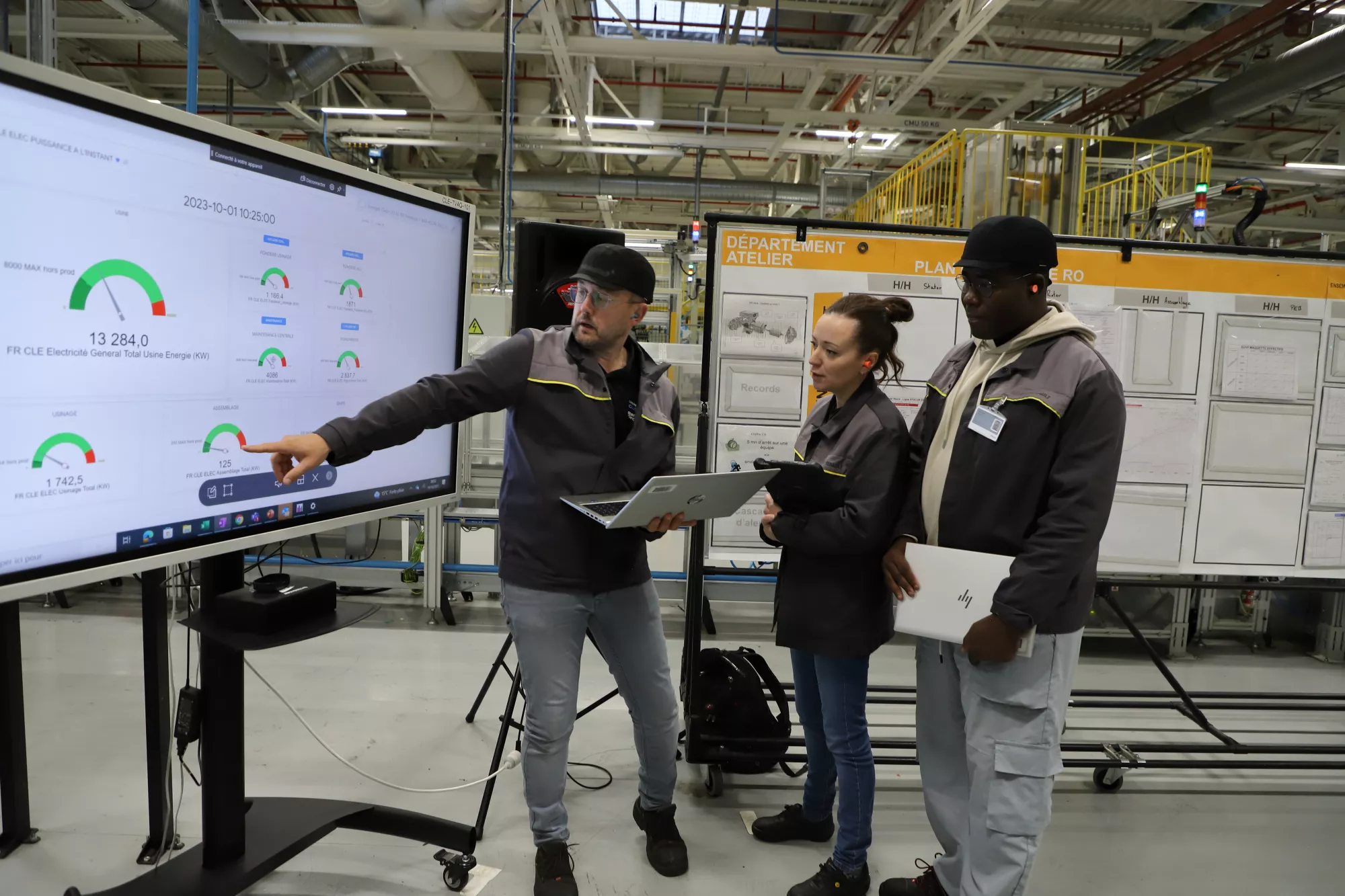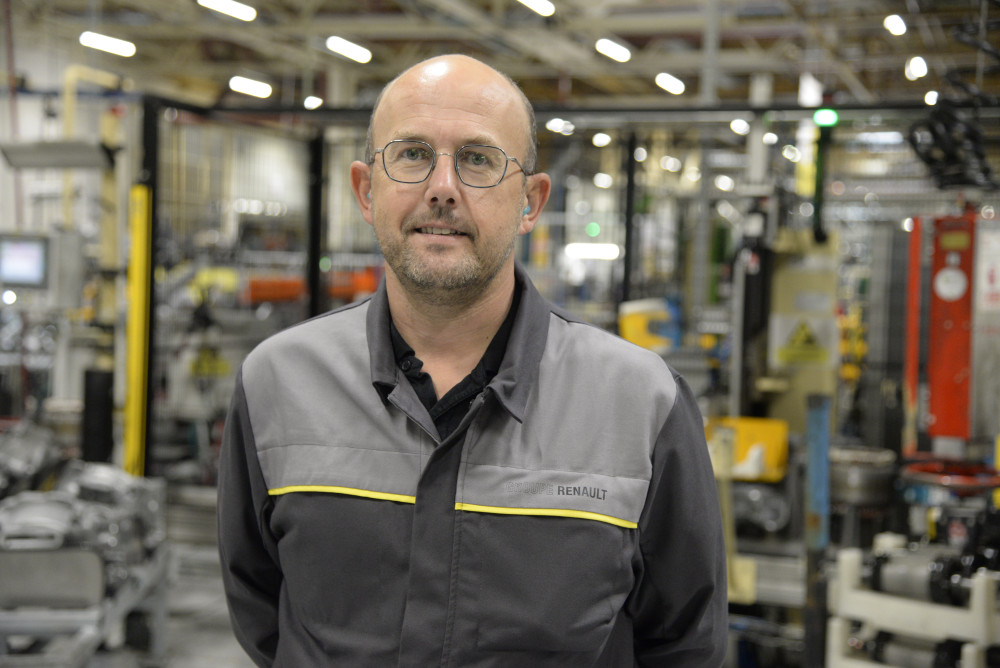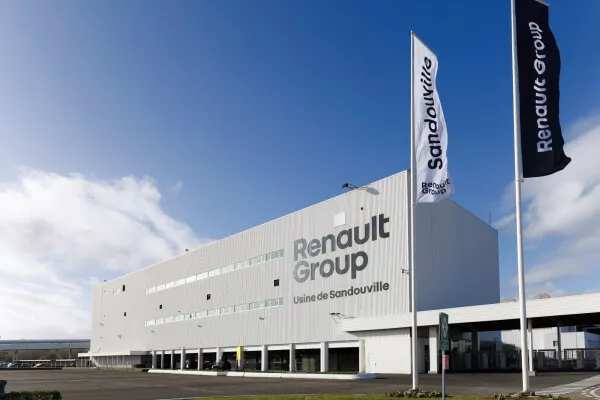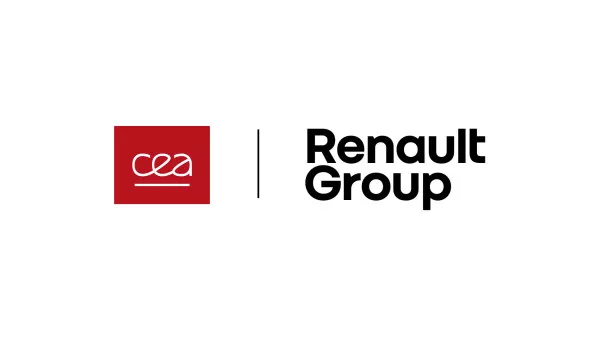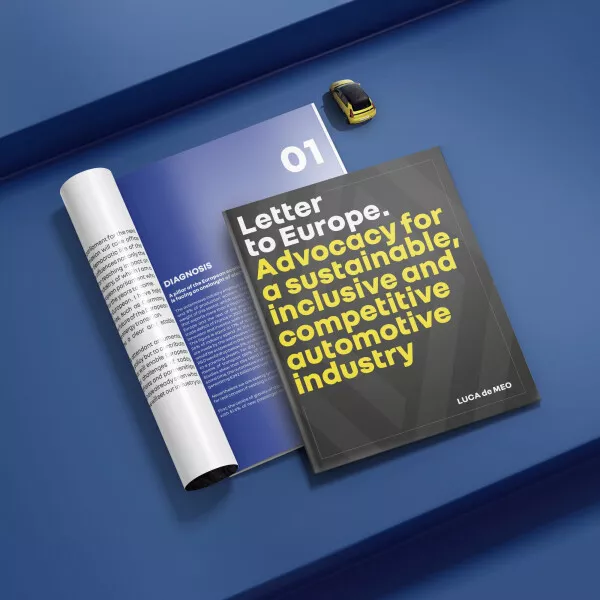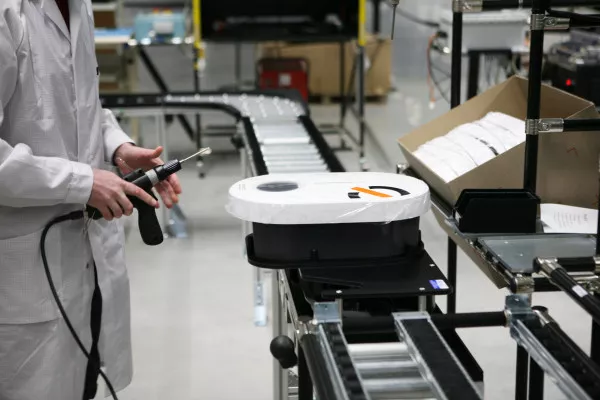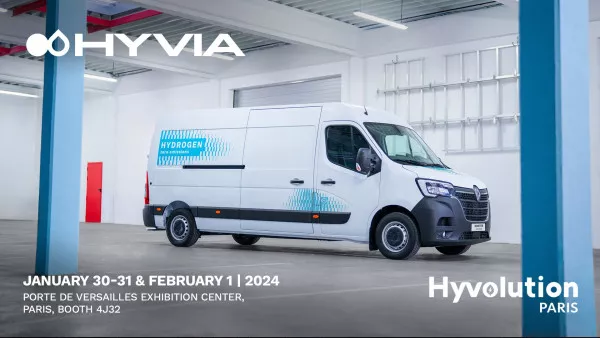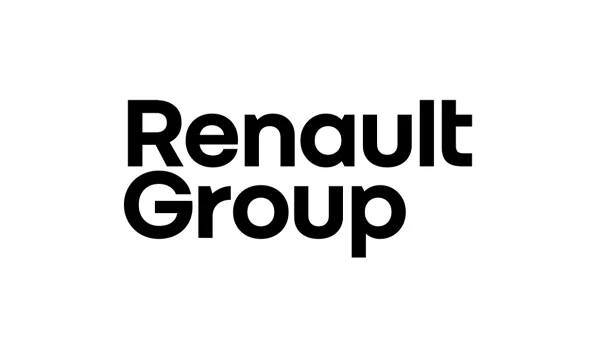Energy performance: the Ecogy portal keeps consumption under control at Renault Group’s plants
Net-zero carbon emissions. That is what Renault Group has pledged to achieve at its ElectriCity hub and Cléon plant by 2025 then throughout its industrial operations by 2030. It is tackling the issue from two angles: gravitating towards low-carbon energy and enhancing energy efficiency. The key for the second is the ability to monitor and regulate plant consumption in real time. That was a sizeable challenge for Renault Group’s teams on the ground. And they pulled it off with Ecogy, a portal developed in-house in record time and now up, running and delivering results. So what is Ecogy? How is it used? What kind of concrete measures has brought about and how much energy is it actually saving? Take the tour, with Sébastien and Xavier.
24 October 2023 10:00
Driving a car without a dashboard: that, figuratively speaking, is how Renault Group would be managing electricity consumption at its industrial plants without the Ecogy portal. This tool, which measures consumption in real time then processes and analyses the data, is vital to improve each plant’s energy performance and, at the end of the day, help the Group reach its net-zero carbon emissions target. Our two experts show you why Ecogy is so essential.
“We had set up many compressed-air, gas and electricity meters over the years. So we had a clearer picture of our consumption and could identify opportunities to save energy more accurately. But that wasn’t enough: we still had to mine all that data. To help us do that, we developed a new digital tool in-house, in less than six months, that analyses results very fast: Ecogy.”
Sébastien, Decarbonisation leader, Cléon plant
The stakes are huge
Sébastien doesn’t beat about the bush: “Industrial plants use massive amounts of energy as a matter of course.” In 2021, Renault Group’s plants in Europe consumed 4 TWh, including 2.1 TWh in France. That’s enough to power a city with 2.2 million people for a year – a city the size of Paris, say.
“Those figures give you a sense of the massive stakes associated with improving energy performance at Renault Group plants,” adds Xavier, an expert in innovation and digital technology applied to industry.
Knowing how much a plant consumes in total is one thing. But then you still need to figure out what consumes what and how. And the system for that had to be built from the ground up.
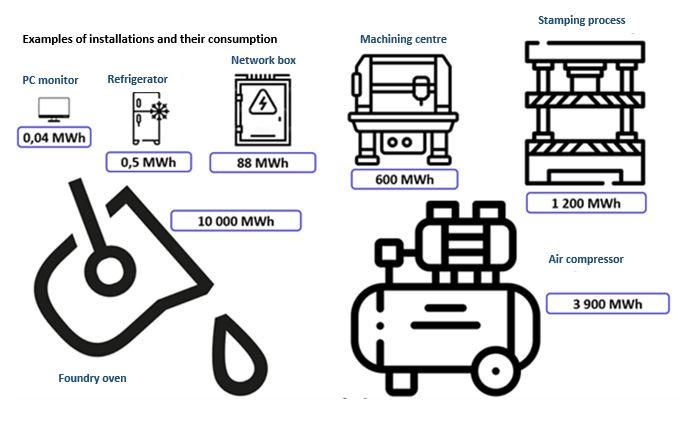
Industrial machinery is energy-intensive: here are a few examples
The starting point: metering consumption on the factory floor
The first step in Renault Group’s energy efficiency strategy – and the first building block in the system that has grown into the Ecogy portal – was fitting 10,000 sensors in workshops (including 1,500 in 2022) and connecting 8,500 processes to the cloud, mostly in plants but also in offices (Technocentres).
“At Cléon, we set up 2,500 electricity meters and 15 gas and compressed air meters,” Sébastien remembers. “That’s where our energy management adventure started!”
“This gigantic array gave us a clear picture of our energy consumption on a large scale, and added a bit more granularity – in a full plant and in an individual workshop. We had never had so much information,” Sébastien smiles.
“At Cléon, where we make engines, the readings showed that heating the furnaces in the foundry is what consumes the most energy – by far.”
Heating also explains why the paint shop consumes 39% of all the energy in a bodywork assembly unit. Machining (including assembly) comes second (16%) and heating for buildings third (10%).
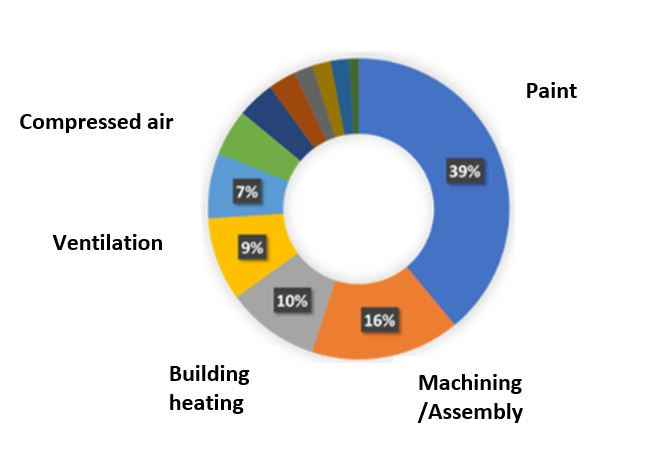
Energy consumption breakdown in a bodywork assembly unit
The challenge: monitor all consumption, all the time, in real time
“The sensors in the plant send their data to the cloud 24/7,” says Sébastien. “That’s a colossal volume of data. Then, to cluster, process, analyse and manage that data, we really needed a tool to replace the one that we had to stop using on 1 August – and needed it fast. We developed Ecogy in-house, around our exact requirements,” he remembers.
Renault Group’s teams got to work, pooled their expertise, and built the Ecogy portal in less than six months. It is a single gateway to track everything a plant consumes: electricity, air, water, gas, etc. It went live on 1 August 2022, crowning a remarkable display of teamwork!
Ecogy is effective, easy to use and everything else it needed to be. More than 350 users are now managing and analysing the data that the sensors collect. The 33 energy leads (like Sébastien) meet once a week to share best practices, talk about their specific goals, circulate the custom dashboards they have created (2,000 and counting) and share advice.
“Ecogy supplies so much more than raw data! You can use it to generate your own dashboards using whatever parameters you want, set overconsumption alerts, cross-reference consumption and other factors like the weather, compare consumption in various similar facilities, etc.,” Sébastien enthuses.
“We are using Ecogy to supervise all our plants, and spot any deviations or anomalies. When we do, we look into them to find the cause and take one or more corrective measures as soon as possible,” a proud Sébastien adds.
As shrinking carbon footprints and saving energy go hand in hand, the platform retrieves data from energy suppliers too. “Sharing information like this helps everyone – for example it keeps everyone in the loop if the gas network is under pressure,” Sébastien continues.
The results: energy-saving measures are already being taken
“The Ecogy portal zeroed in on many opportunities to optimise energy use at industrial facilities. And it soon started measuring the improvements too,” Xavier beams.
At Batilly, which makes Master LCVs, sensors now regulate the warm-air curtains by the fast-action roll-up doors connecting the building to the outside. This system has cut heat loss by 80% and is saving the equivalent of €80,000 a year.
At Sandouville, which makes Trafic vans, speed variators were fitted onto the electric motors that drive the welding units. Simply by adapting the pace of the process, these devices reduced consumption by 7%.
At Cléon (engines and transmissions), sensors helped to spot abnormal air conditioning settings in one piece of machinery. Resetting the system back to normal swiftly put an end to the energy overconsumption it caused.
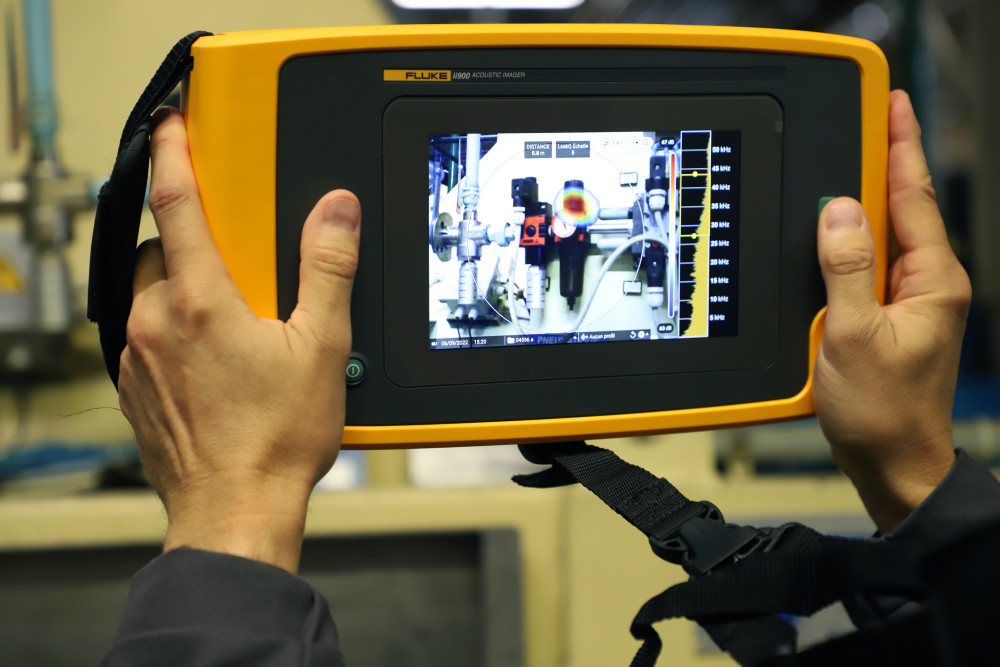
Using an air sensor to detect any compressed air leaks in installations
The prospects and possibilities: digital technology enhancing energy performance
“We now have a year’s worth of 24/7 consumption data from the 25 sites. This mine of information is extremely valuable to manage energy performance with state-of-the-art digital tools,” Xavier continues. The goal now is to establish standard patterns and start making projections.
Renault Group is developing a predictive approach to a plant’s energy consumption using artificial intelligence. “We’re still laying the groundwork, but the goal is to provide the plants with a forecast of their daily consumption based on their specific operation – for example, at an assembly plant, based on how many vehicles it produces,” Xavier adds.
Thanks to the possibilities that the Ecogy monitoring tool is opening up and the development of artificial intelligence, Renault Group aims to reduce consumption at all its industrial bases by 25% from 2021 to 2025.
Improving energy efficiency and making plants more compact has already cut pollutant emissions by 25%.
Sébastien, Xavier and the rest of the team working on Renault Group’s energy efficiency strategy have every reason to be proud of what they have accomplished. Thanks to it, Renault Group stands among the world’s leading carmakers on the energy performance ranking.
Consuming less and betterThe renewable energy supply contracts that Renault Group has negotiated continue to decarbonise its operations and tighten its control over costs. In November 2022, it signed a partnership agreement with Voltalia, which will supply solar power to cover 50% of requirements at Renault’s production plants in France by 2027. |
Renault Group is at the forefront of a mobility that is reinventing itself. Strengthened by its alliance with Nissan and Mitsubishi Motors, and its unique expertise in electrification, Renault Group comprises 4 complementary brands - Renault, Dacia, Alpine and Mobilize - offering sustainable and innovative mobility solutions to its customers. Established in more than 130 countries, the Group has sold 2.1 million vehicles in 2022. It employs nearly 106,000 people who embody its Purpose every day, so that mobility brings people closer.
Ready to pursue challenges both on the road and in competition, Renault Group is committed to an ambitious transformation that will generate value. This is centred on the development of new technologies and services, and a new range of even more competitive, balanced, and electrified vehicles. In line with environmental challenges, the Group’s ambition is to achieve carbon neutrality in Europe by 2040.
More information www.media.renaultgroup.com
Media library (3)
Renault Group is at the forefront of a mobility that is reinventing itself. Strengthened by its alliance with Nissan and Mitsubishi Motors, and its unique expertise in electrification, Renault Group comprises 4 complementary brands - Renault, Dacia, Alpine and Mobilize - offering sustainable and innovative mobility solutions to its customers. Established in more than 130 countries, the Group has sold 2.1 million vehicles in 2022. It employs nearly 106,000 people who embody its Purpose every day, so that mobility brings people closer.
Ready to pursue challenges both on the road and in competition, Renault Group is committed to an ambitious transformation that will generate value. This is centred on the development of new technologies and services, and a new range of even more competitive, balanced, and electrified vehicles. In line with environmental challenges, the Group’s ambition is to achieve carbon neutrality in Europe by 2040.
More information www.media.renaultgroup.com
Related topics
